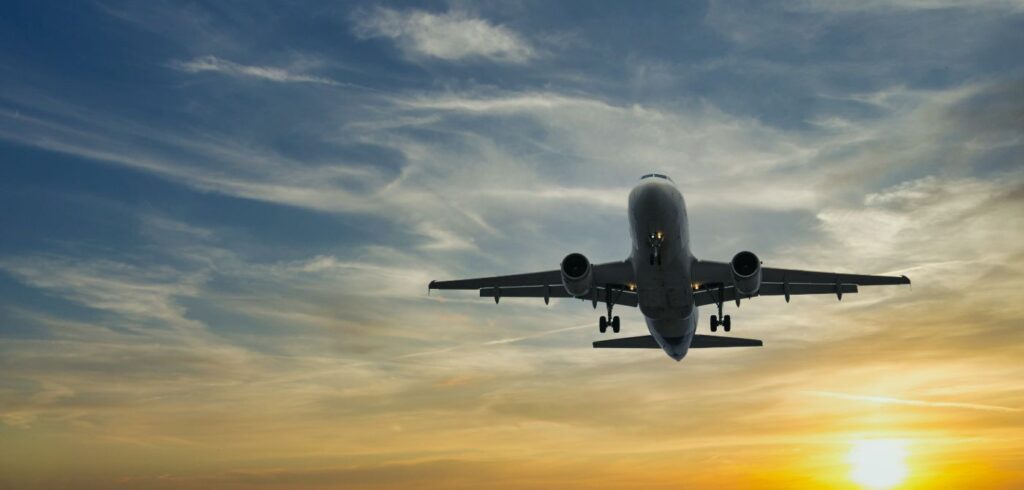Airports Council International (ACI) World has released its latest Advisory Bulletin with data on the impact of Covid-19 on global passenger traffic and the airport business, revealing a potential turning point in the recovery of travel.
As presented in the Advisory Bulletin: The impact of COVID-19 on the airport business—and the path to recovery, ACI World expects the momentum created by reopening borders to have a positive impact on the economic recovery. The performance of the global economy accelerated in the last months of 2021 as more pandemic restrictions were removed, facilitating the trade in goods and enabling the manufacturing and services sectors to grow.
While the organization remains optimistic, it is also cautious that recovery could face multiple headwinds ranging from new potential variants, high crude oil prices, higher inflation or supply chain disruptions. Armed conflict, such as the current situation in Ukraine, and increased geopolitical tensions around the world could also dampen the speed and magnitude of the recovery.
Over 2021, the Covid-19 crisis removed approximately 5.4 billion passengers compared to the projected baseline (the pre-Covid-19 forecast for 2021), representing a loss of 55% of global passenger traffic. This represents less than half of what it was in 2019, with traffic for 2021 totaling only 4.4 billion (48.3%) of the 9.2 billion passengers served in 2019.
Domestic traffic continued to drive recovery, reaching close to 3.4 billion passengers corresponding to 63.4% of 2019 levels. International passenger traffic volume lagged significantly behind domestic traffic recovery in 2021 and is estimated to total only 1.05 billion passengers for the year, or 27.8% of the 2019 level.
In 2022, the Covid-19 crisis is expected to remove close to 3.7 billion passengers during the year compared to the projected baseline, representing a 36.1% decline in global passenger traffic. Compared to 2019 levels, this would represent a 28.9% decrease.
Domestic traffic volume is projected to recover faster in 2022 than international passenger traffic, reaching a total of 4.46 billion passengers in 2022, or 84% of 2019 volume. While some improvements are expected, especially in the second half of 2022, international passenger volume is forecast to be only slightly above two billion passengers for the year, corresponding to 53.8% of 2019 volume.
The Covid-19 crisis continued to severely affect airport revenues in 2021. It is now estimated that, globally, airports lost more than US$83.1bn in revenues in 2021. Prior to the Covid-19 outbreak, the airport industry was expected to generate more than US$175.8bn in revenues in 2022. However, the impacts of the Covid-19 crisis on airport revenues will continue in 2022, reducing them by an additional US$60.8bn, or 34.6%, compared to the projected baseline. Airport revenues in 2022 are forecast to only reach 72.6% of 2019 levels.
Alongside the release of its ninth quarterly Advisory Bulletin on the impact of Covid-19 on the airport business, ACI released its annual World Airport Traffic Forecasts 2021–2040 report. The excel data set presents the expected number of aircraft movements, passenger traffic throughput, and air cargo volume on a global, regional and national level.
Luis Felipe de Oliveira, director general of ACI World, said, “Our thoughts are with the people and our colleagues in aviation impacted by the situation in Ukraine. As we have seen during the Covid-19 crisis, agility and adaptation is in aviation’s DNA. Airports are trained to handle crises and the priority remains to keep people – travelers and staff – safe. This is the number one priority, always. Like many, we are hoping for a peaceful resolution to this crisis.
“On the global front, it has been almost two years since the World Health Organization (WHO) declared the Covid-19 outbreak a global pandemic. However, we have now reached a potential turning point. The unprecedented global vaccination effort and latest recommendation from the WHO that governments ease travel restrictions could jumpstart the global economic recovery and that of air transport demand.
“Countries are now introducing measures for which ACI has been advocating for months: the implementation of risk- and evidence-based approaches for a safe return of travel. ACI now calls on governments worldwide to ease travel restrictions to restore travel, trade and tourism. During this transitional phase, the ongoing commitment to the safe resumption of travel is critical, including that of national and international regulators.
“Despite the risks that exist, the industry remains confident that the potential for a recovery to 2019 levels within two or three years is foreseeable. Airport planners and investors are encouraged to make use of the latest ACI World Airport Traffic Forecasts 2021–2040, to leverage data-driven decision-making in their short- and long-term sustainable planning.”

